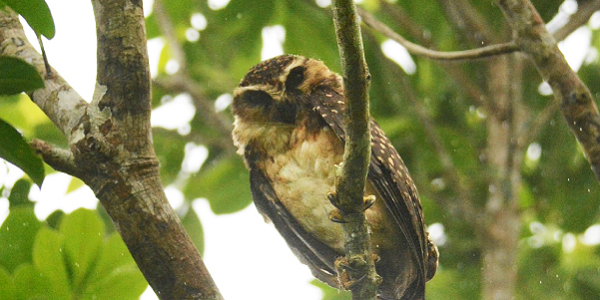THE United Nations Office on Drugs and Crime (UNODC) is supporting Solomon Islands Environment and Conservation Division in the Ministry of Environment, Climate Change, Disaster Management and Meteorology (MECDM) and national counterparts to develop a Rapid Reference Guide for the investigation and prosecution of wildlife crime.
The Rapid Reference Guide or ‘points-to-prove guide’ highlights key domestic legal and procedural requirements that should be observed when preparing a wildlife crime case, with a view to increasing the rates of successful prosecution, a statement from UNOD said.
“These guides contain the relevant offences under existing laws at the time of publication; an overview of the necessary requirements to build a case against those accused of wildlife and related crimes; ancillary powers available under each relevant statute and standard operating procedures regarding inter-agency collaboration relating to the investigation and prosecution of such offences, which helps to foster better cooperation and collaboration between all agencies involved,” it explained.
The UNOD statement said as a region rich in natural resources and rare and endangered endemic species that are highly valuable in the trade, the Pacific is an attractive source location for wildlife criminals and specialist collectors. Pacific countries face challenges in having an extensive geographic area, porous maritime borders, a relatively small population scattered across multiple islands, and limited law enforcement resources to patrol its vast territory.
“In 2018, Pacific leaders signed the Boe Declaration and endorsed the Action Plan on Regional Security at the Pacific Islands Forum. Strategic Focus Area 3 of the Action Plan is dedicated to environment and resource security, which aims to strengthen and support national efforts to address corruption related to the environment and strengthen national capacities to address policy and legislative gaps to support environmental protection and combat environmental crime. This is further reinforced by the commitment to increase the response to transnational organized crime under the Action Plan.
“The Pacific’s roadmap to address corruption in the region is the Teieniwa Vision, endorsed in 2021 by Pacific Islands Forum Leaders as the Forum’s regional commitment to progress Pacific unity against corruption. To operationalise the Teieniwa Vision, the UNODC is partnering with the Pacific Islands Forum Secretariat to support Pacific countries to implement recommendations to reinforce good governance and address corruption,” it added.
A three-day Capacity Building & Consultative Workshop on the Rapid Reference Guide for the Investigation and Prosecution of Wildlife Crime conducted at the Heritage Park Hotel in Honiara will conclude today.
The workshop aims to build capacity on investigation of wildlife crime, and specifically build explore techniques for investigating corruption and conducting financial investigations related to wildlife crime.
The workshop is organised in partnership with the Solomon Islands Environment and Conservation Division and will be facilitated by the UNODC’s Global Programme on Crimes Against the Environment through the Combating Wildlife Trafficking in the Pacific project, funded by the Bureau of International Narcotics and Law Enforcement Affairs of the US Department of State and the Anti-Corruption Programme, Teieniwa Vision project funded by the New Zealand Government.









